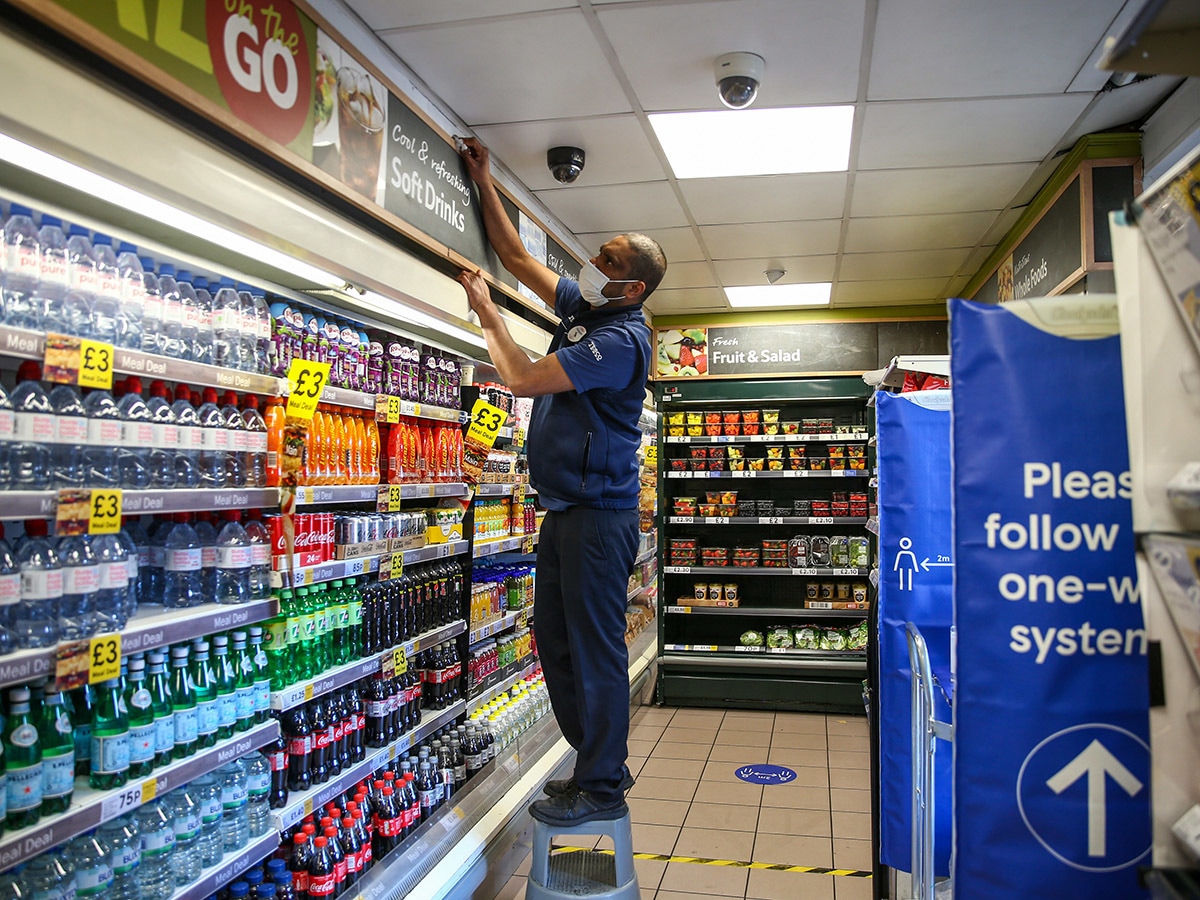Tesco's share price soared at the start of the coronavirus pandemic as shoppers stockpiled essentials, but several months into lockdown, the panic buying is over and supermarket gains have slowed. Tesco has seen costs mount, having recruited an army of employees to meet the extra, short-term demand. Tesco has also reduced its international presence this month.
But what's in store for Tesco's [TSCO] share price post Q1 results? Could the strength in Tesco’s underlying business help realise gains over a longer-term time horizon?
What's happening with Tesco's share price?
Tesco's share price is down circa 11% so far this year. While that's similar to Sainsbury's (down 11.5%), both supermarkets are lagging behind WM Morrisons (-5.66%) as of 24 June’s close. Like other major supermarkets, the share price spiked in March as panic buying swept the nation. After a mid-June drop, Tesco's share price has recovered somewhat, and was up 1.3% since this time last month (as of 24 June’s close).
When is Tesco announcing Q1 results?
26 June
What should investors look out for in Tesco’s share price?
Increased costs threaten Tesco’s share price
On 8 April Tesco released preliminary 2019/2020 results. In the accompanying statement, the supermarket said that the first few weeks of the outbreak had seen 'significant panic buying'. How significant? A 30% uplift in sales, with some items completely cleared from the shelves, while online shopping orders jumped 20%. Tesco’s share price opened up over 4% higher the next day.
However, to cope with the extra demand, Tesco took on a staggering 45,000 extra employees. This means more staff on the payroll, plus additional training and administration costs. The company expects to take a hit of between £650 million and £925 million in light of these expenses.
45,000
Number of extra employees Tesco hired to cope with demand
However, the supermarket seems hopeful that things will balance out. In a statement, the company said:
"At this stage, it would not be prudent to provide financial guidance for 2020/21, however, if customer behaviour were to return to normal by August it is likely that the additional cost headwinds incurred in our retail operations would be largely offset by the benefits of food volume increases, twelve months’ business rates relief in the UK and prudent operations management."
How will its retreat from international markets impact Tesco’s share price?
Further afield, June saw Tesco selling its 301 Polish stores to Netto in a deal worth £181 million. Tesco had lagged behind local rivals and suffered under the country’s trading conditions — most notably, restrictions on Sunday trading. Scaling back its ambitions in central Europe might come as a relief to shareholders since, in 2019/2020, preliminary results for sales in the region came in at £5.3 billion, down 12.3% year on year.
£181million
Valuation of Tesco's deal selling its 301 Polish stores to Netto
This follows the sale of Tesco’s south-east Asian operations to Thailand's Charoen Pokphand in March. Worth $10.6 billion and covering 2000 stores, the sale was the largest in Thailand's history.
Any sign that reducing its international ambition has reduced costs in the first quarter could see some post-earnings price movement on Tesco’s share price.
Fundamentals suggest price performance
Simply Wall Street reckons Tesco's underlying business strength and good management should see the share price gain in the long term. In the analysis, Simply Wall Street expects Tesco’s return on equity to grow from 7.1% to 8.6% as the supermarket reinvests more money in its business.
Given that analysts calculate return on equity by dividing net income by shareholder’s equity, first-quarter income numbers will help to suggest whether or not this is achievable.
"Assuming all else is equal, companies that have both a higher return on equity and higher profit retention are usually the ones that have a higher growth rate when compared to companies that don’t have the same features," Simply Wall Street said in its analysis.
If it can demonstrate improved profit retention in the first quarter, this could point to longer-term growth for Tesco’s share price.
“Assuming all else is equal, companies that have both a higher return on equity and higher profit retention are usually the ones that have a higher growth rate when compared to companies that don’t have the same features” - Simply Wall Street
Time to buy Tesco?
For some investors, Tesco might be seen as a decent option, especially with other organisations scrapping payouts completely this year. The supermarket carries a 4.04% forward yield and payouts have increased 51.14% over five years.
Of the 16 analysts tracking the company on the Financial Times, the majority rate it Outperform, and Tesco's share price carries a 275p average 12-month price target. Hitting this would see a 21% upside on the current price.
| Market Cap | £21.986bn |
| PE ratio (TTM) | 22.68 |
| EPS (TTM) | 9.90 |
| Operating Margin (TTM) | 4.48% |
Tesco share price vitals, Yahoo Finance, 25 June 2020
Continue reading for FREE
- Includes free newsletter updates, unsubscribe anytime. Privacy policy





